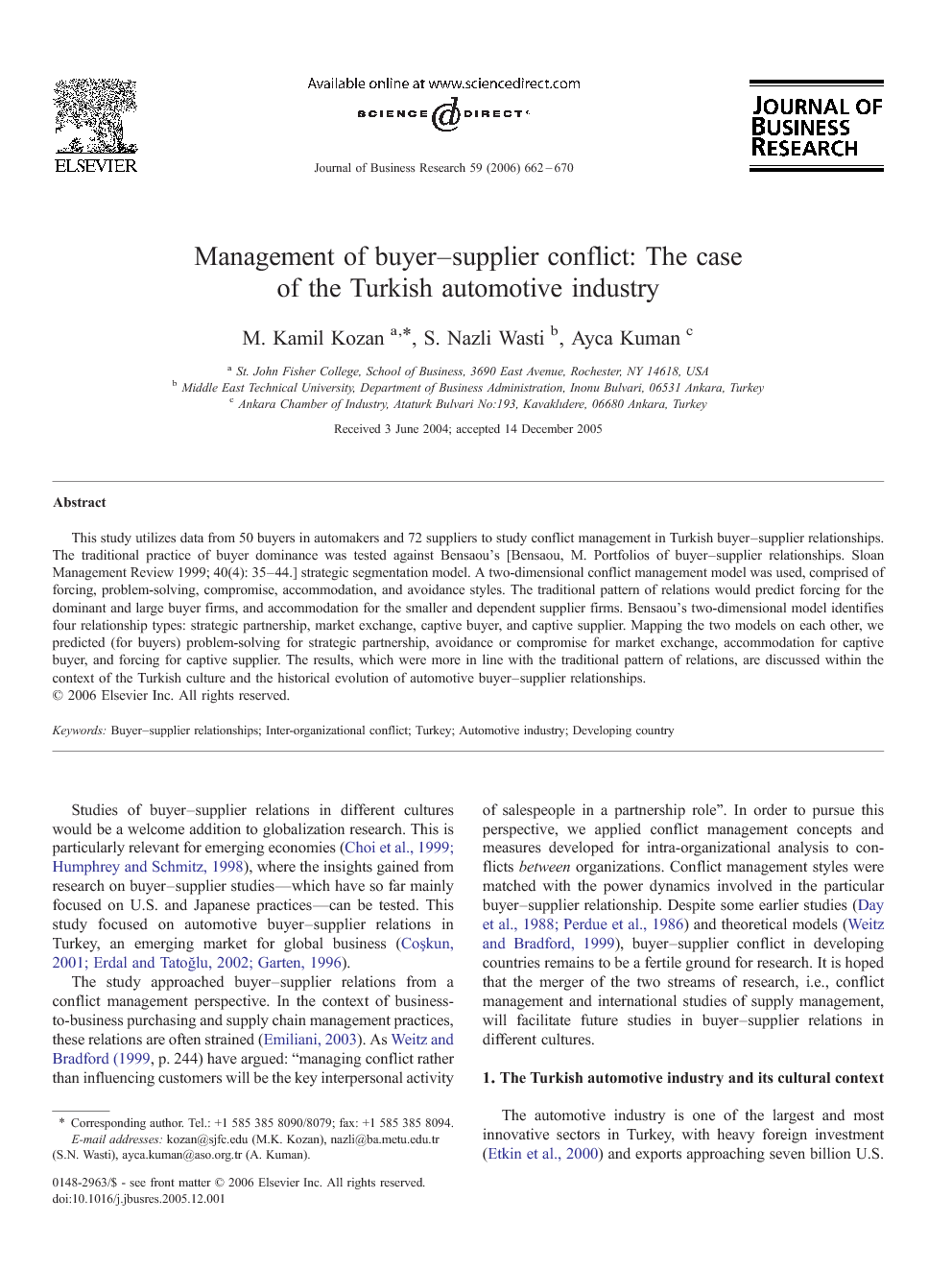ترجمه فارسی عنوان مقاله
مدیریت تعارض خریدار تامین کننده: مورد صنعت خودرو ترکیه
عنوان انگلیسی
Management of buyer–supplier conflict: The case of the Turkish automotive industry
| کد مقاله | سال انتشار | تعداد صفحات مقاله انگلیسی |
|---|---|---|
| 21171 | 2006 | 9 صفحه PDF |
منبع

Publisher : Elsevier - Science Direct (الزویر - ساینس دایرکت)
Journal : Journal of Business Research, Volume 59, Issue 6, June 2006, Pages 662–670
ترجمه کلمات کلیدی
روابط خریدار تامین کننده -
درگیری های درون سازمانی -
ترکیه -
صنعت خودرو -
کشور در حال توسعه -
کلمات کلیدی انگلیسی
Buyer–supplier relationships,
Inter-organizational conflict,
Turkey,
Automotive industry,
Developing country,

